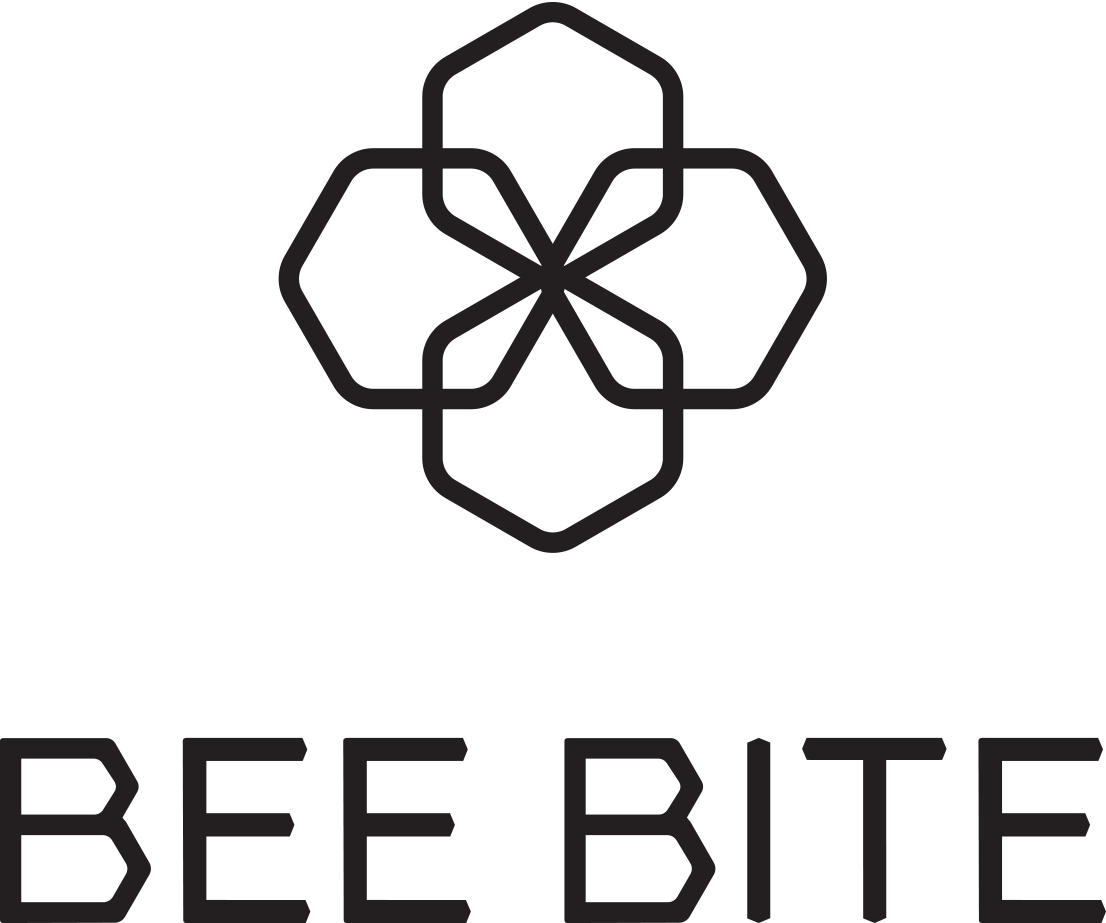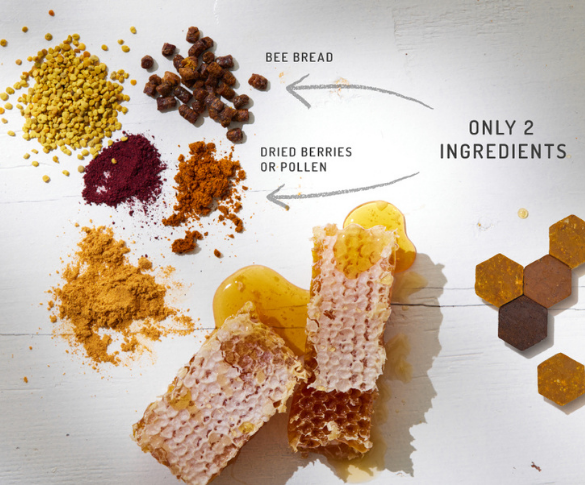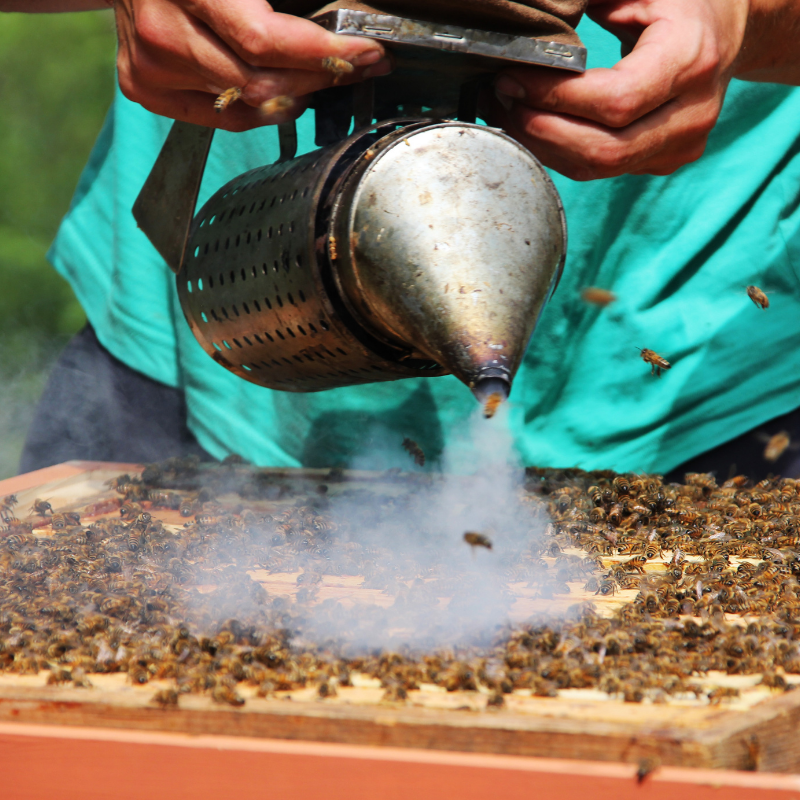Пчелиный хлеб — ценный продукт для укрепления микробиоты кишечника
Over recent years, microbiota has been the focus of multiple sectors of science, including molecular medicine, genetics, microbiology and others. It is currently known that microbiota not only affects general health, but can also serve as a biomarker for the prognosis, diagnostics, therapy and prevention of certain diseases. The importance of human microbiota has been subject to medical research, addressing not only gastrointestinal diseases, but almost all of the largest systems of the body. Microbiota is associated with the origins of metabolic diseases, cardiovascular diseases, allergic diseases, autoimmune diseases, oncological diseases, etc. Furthermore, the intestinal microbiome is associated with mental and psychiatric health. Changes in the gastrointestinal tract and its microbiome may cause anxiety, stress and even depression, as well as the opposite – the emotional and psychiatric condition of the person may affect the gastrointestinal tract.

Microbiota, which is an aggregate of all micro-organism species – fungi, bacteria and viruses, is a very important component of human health. It is called a separate organ for a reason, as it affects the immune system of a person. Microbiota, the composition of which is diverse, mainly consisting of benign species of bacteria and fungi, is considered to be healthy; furthermore, it must be capable of adaptation. Meanwhile, the condition of altered microbiota, where harmful bacteria and fungi prevail, is referred to as dysbiosis. Dysbiosis is affected by the ageing processes of the body, external environment, food habits, and medications. The most common medicinal cause of dysbiosis is associated with the use of antibacterial medicinal products, as well as medications that are called proton pump inhibitors (PPIs), non-steroid anti-inflammatory drugs (NSAIDs) and antipsychotic medications.
Unfortunately, no common “correct” microbiome for all people exists, since it differs in different populations depending on age, sex, ethnic origin, as well as many other external and internal factors. The microbiota of each person may differ and change over the course of their life. Micro-organism communities start forming in the gastrointestinal tract from the moment of being born. They are affected by the way of giving birth to the baby, as well as by the nutrition of the child during the first years of their life. Later in life, the intestinal microbiota may be affected by factors that cannot be altered (genetic and environmental factors), but there are factors that can be modified by means of changing your lifestyle or physical activity, as well as changes to your food habits. Among the multiple factors that affect intestinal microbiota, food is considered to be one of the main pre-determinants of intestinal microbiota.
Given that food is one of the determining factors, maintenance of healthy microbiota involves diversity of food and the inclusion of products that contain prebiotics and probiotics in your diet. Food that contains sufficient amounts of all vital groups of nutrients – proteins, fats and carbohydrates, enables optimal functioning of the body and provides energy, as well as the supply of vitamins and trace elements.
Inhabitants of Europe, Asia and Africa have been familiar with the use of products that contain probiotics for centuries. Probably, without being fully aware of the potential effects of these products on health, people have been using fermented products such as kefir, yoghurt, whey, sauerkraut, kimchi, cheese, kombucha, cheese, wine, beer, vinegar, etc. since ancient times. Fermentation not only serves as a method of preservation of the product, but the nutritional value of the product increases, and the chemical properties of the product change as a result of fermentation, which includes the taste, odour and acidity of the product.
Probiotics are micro-organisms, which affect human health, if used in certain quantities. Lactobacillus (for instance, L. Acidopilus) and Bifidobacterium (for instance, B. bifidum) genera of bacteria and S. Boulardii yeasts are the most extensively researched probiotics in scientific and medical practice. The beneficial effects of the species and strains of bacteria have been researched in the context of preventing various symptoms and diseases. Probiotics are most commonly prescribed in the event of various gastrointestinal disorders – diarrhoea, constipation, flatulence, for the prevention of acute infectious disease risks, in the event of irritable bowel syndrome, for the therapy of fatty liver disease, for the reduction of adverse reactions after the use of antibiotics, in the event of respiratory diseases, etc.
The other way of affecting the gastrointestinal tract in a positive way is the inclusion of sufficient amounts of fibre and prebiotics in the diet. Prebiotics are predominantly carbohydrates, however, not all carbohydrates can be classified as prebiotics. Currently, resistant oligosaccharides (fructans and galactans, inulin) are considered to be prebiotics. Other fibres, which are not prebiotics, possess prebiotic potential or are candidates for prebiotics. Meanwhile, proper prebiotics must possess three properties. First, they must be resistant to gastric acid and hydrolysis and they must be absorbed in the gastrointestinal tract; secondly, they must be metabolised by intestinal microbiome; and thirdly, they must enhance the growth of such beneficial bacteria that promote health. Furthermore, prebiotics may not promote the growth of pathogen bacteria, as well as their use may not cause side effects such as flatulence. Unfortunately, excessive use of prebiotics (as well as fibre) may cause unpleasant side effects including flatulence, intestinal gases and diarrhoea. People with irritable bowel syndrome (IBS) are especially sensitive to prebiotics. The best-known and most commonly used products that contain fructose and galactose oligosaccharides are onions, garlic, leeks, beans, chickpeas, wheat products (including whole grain), ripe bananas, cranberries, watermelon, and cashews.
Resistant starch and pectin are also considered to be prebiotics. As the name suggests, resistant starch is a type of fibre that is resistant to digestive enzymes and juices; it is fermented by micro-organisms in the colon, resulting in short-chain fatty acids. Resistant starch is divided into 5 types; however, the most common popular products that contain resistant starch are course ground or whole grain flour, beans, green bananas, green potatoes, as well as boiled and cooled potatoes, and cereal foods (for instance, pasta, rice, oatmeal). Resistant starch is considered to have a particularly positive effect on metabolism-related disorders, such as glucose and fat metabolism, obesity, regulation of satiety and weight control.
Fibre is not classified as a separate group of nutrients; however, the presence or absence of fibre in the food may play a significant role in maintaining health and preventing disease. The main sources of fibre in human food are cereals, beans, vegetables, plants, nuts and seeds. Sufficient ingestion of fibre with food affects the intestinal microbiome (feeds microbiome) and the functioning of the gastrointestinal tract (regulates bowel movement), as well as regulates blood levels of cholesterol and glucose.
Bee bread is a product of natural origin, which contains probiotics. Bee bread is produced as a result of the lactic bacteria fermentation process by using micro-organisms such as Lactobacillus spp., Pseudomonas spp. and Saccharomyces spp. (Barta, Pelka). Due to the content of these bacteria and yeasts, bee bread may be considered a valuable source of probiotics. (Bakour) The probiotics in bee bread produce bactericides and short-chain fatty acids by reducing intestinal pH, enhancing the protection of the intestinal mucous membrane and its functions.
Fermentation is a biological process, whereby sugar, under the influence of lactic bacteria, is transformed into lactate and cellular energy (ATP). As a result of fermentation, the nutritive value of the product improves; however, the presence of other chemical compounds in it makes bee bread especially valuable. In comparison with bee pollen, bee bread contains more polyphenols – mainly flavonoids and phenolic acid; furthermore, it is believed that the fermentation process increases the bioavailability of polyphenols in the fermented product. (Leeuwendaal) Polyphenols are natural antioxidants that favourably affect the microbiota of the gastrointestinal tract and immunity. The most common polyphenol compounds in bee bread include kaempferol, myricetin, luteolin, isorhamnetin and quercetin; the presence of compounds such as gallic acid, protocatechuic acid, caffeic acid and p-coumaric acid is also possible in smaller amounts. As with other fermented products, it is the fermentation process that allows bee bread to be considered superior in terms of nutritional value and bioavailability over bee pollen. Bee bread is easily absorbed and digested, which results in the better absorption of nutrients in the body.
As with the research of the microbiome and probiotics, research on the diverse effects of bee bread on the human body is still ongoing. However, it is already known that the inclusion of bee bread in the diet may provide a valuable contribution to the maintenance of human health and prevention of diseases. With the inclusion of bee bread in the diet, the body is supplied with important amino acids, fatty acids, macro-elements and trace elements, polyphenols and enzymes, which form the basis of good health.
In the context of the human microbiome, nutritional science puts extensive effort into the research of food products with especially high or added value for improving health. These products are referred to as functional food. Although the definition of functional food is not yet finalised, considering the properties attributed to functional food, a conclusion can be drawn that products used as food for centuries, such as yoghurt, sauerkraut, bee pollen, bee bread and other products, already possess these beneficial properties. In order to improve health, it must be remembered that food consumed on a daily basis must be diverse, seasonal and of local origin to the extent possible, as well as it must consist of products that contain probiotics, as well as prebiotics in order to ensure that the intestinal microbiome is well nourished.

|
Author of the article - nutritionist Agnese Ozolina. Member of the Latvian Association of Diet and Nutrition Specialists (LDUSA). |









